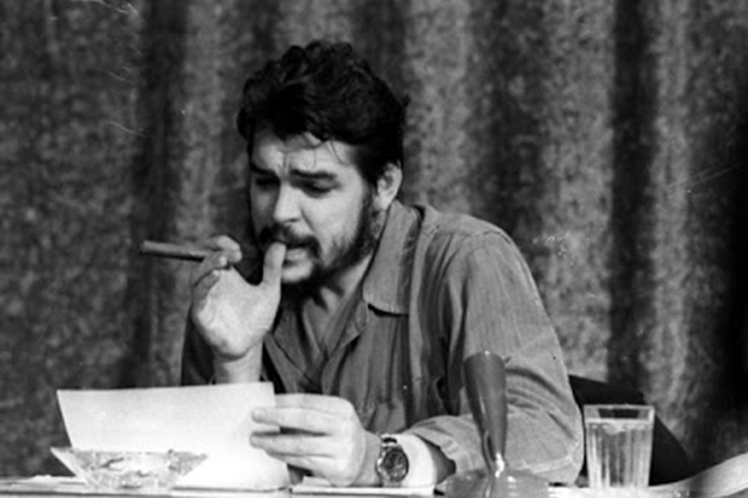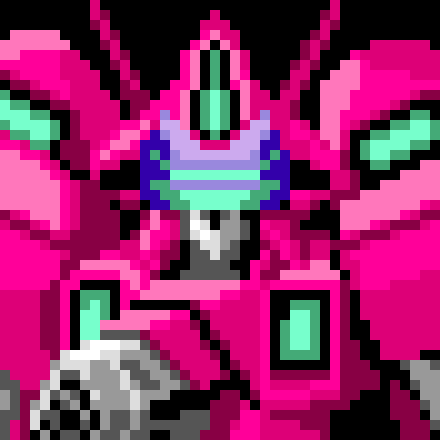the line Luthen said to young Kleya about how all she knew was hate and that wasn’t enough. She needed to know where to put it and feed it until she knew where and when and how to use it.
I can’t remember the exact line, but that was some heavy shit.
there’s something real there about the instant, righteous hatred of youth for injustice… and the patient, nuclear hatred of long experience. all those tactical losses stacking, building and feeding the resolve and fire of the long strategy.
Meero deeply underestimated Luthen’s hatred when she chose to confront him the way she did… assuming he wanted to live another second longer than he needed to for the job. I like that he got to call her out on her pride too. she didn’t really process it then, but I think it sunk in by the time she was in her cell.
I like that it didn’t dismiss the hatred too. In Jedi, Luke has to let go of his hatred toward his fther and the Empire, and it almost gets him killed, but the message still seems to be that love conquers all. In Andor we’re shown the good in hate, which IMO lands much closer to the yin-and-yang ideals of the force than purity of Jedi ideology
In some ways Luthen is the actual embodiment of the values of the Sith.
Peace is a lie, there is only passion.
Through passion, I gain strength.
Through strength, I gain power.
Through power, I gain victory.
Through victory, my chains are broken.
The Force shall free me.
In some ways, yes, but Luthen did ultimately want peace.
And this is something I think the sequel trilogy got right: Jedi and Sith ideologies needed to die. If the force is a reflection of balance, the Jedi need to recognize the value of passion within compassion and the sith need to recognize the value of compassion within passion. The strict doctrinal requirements of these religions were the entire cause of the atar wars in the Skywalker Saga
I don’t care what anyone says, Rian Johnson ate with that
good post. the Jedi orthodoxy has generally irritated me personally as this half baked “everything is always as it should be” extremist emotional-bypass baloney.
real facts: sometimes shit is fucked!
it seemed like the prequels showed the rigidness of the Jedi, because they could not or would not do shit about anything even as the Galaxy’s most obvious coup was unfolding. just sitting around in their groovy 60s chairs in a circle and brow beat junior members for having emotions about heavy shit.
the sith are a dumpster garbage game of musical chairs with like 2 chairs, but their most potent recruitment pipeline is Jedi rigidity.
Dedra didnt consider Luthen at all, she wanted her moment of glory to justify all the loses (syril) she had to endure, where worth it in the end. And thats why she fell.
I read this a bit differently. Revenge was sweet, but this had been her goal even before Syril. Her pursuit of Axis gave her purpose, and was central to her self-conception as a contributing member of a greater community.
As an orphan within a discompassionate system, she might only have ever gotten a glimpse of positivity from her authority figures by standing out in a way that pleased them. This was central to her conception of self-worth. Indeed, that’s what earned her a position in the ISB. The ISB must have felt cozy for her. Regimented, uniform, and full of individuals like her who sought to define themselves by standing above.
Dedra never learned what love was. Her closest proxies were praise and respect, and alliance was her stand-in for brotherhood. Her happiest moments on camera (prior to her brief triumph over Luthen), were when she worked alongside Attendent Heert, and when Partagaz praised her for her tactful rule-breaking. She got recognized for her differences from her peers, which scratched that itch she struggled so hard to reach.
Dedra’s got a keen eye. She knew Axis was important, and saw him as another chance to earn praise and respect — to earn recognition as an individual for standing out and above. She was close to killing the Rebel Alliance before it ever existed, and her goals were the empire’s goals, even if they were too stupid to see that. She would make them see. They’d have no choice but to realize how special she was, and paradoxically, how much that proved she was one of them. And had she succeeded, she would have been proven correct.
Ghorman ruined this. If Axis was captured in 3 B.B.Y., every project of the Empire would have gained breathing room including Ghorman, including the Death Star (whether she knew of it then or not). Whatever the import of the Ghorman project, she correctly assesed that the capture of Axis would have served it too. But she was taken off of that and had to come to terms with a new goal at Ghorman. Being taken away from leadership on the Ghorman project just as it was coming to completion robbed her once again of the emotional payoff of triumph, which was the beginning of her unwinding. Why did she care if someone 2 steps up recognized her? She wanted the people around her to see that she was more than a cog in the machine — an unachievable goal on a top-secret project she didnt even get to complete. Already, her peers saw her as a failure after Axis eluded her for so long, and Major Partagaz, her father figure, thought her not capable of finishing the job (correctly so, in my opinion).
When she was free from the Ghorman Project, it was her chance to pursue Axis again. And she might have discovered that he was no longer the fulcrum of the Rebel Alliance if it wasn’t for the stroke of luck that the Death Star project provided. If Axis had a connection to that, she could secure its secrecy by capturing the enemy superspy. But if she told the ISB what she knew of the Death Star, she risked losing the moment like she did on Ghorman, so she took a bad gamble.
Partagaz was right in that she was too close to Axis, and to the completion of the Ghorman Project. She couldn’t calibrate her enthusiasm and that’s why he knew when to pull her back. She denied him that opportunity in her final operatio, whoch fucked Partagaz over in the end.
Ultimately, at Narkina 5, she not only became the cog in the machine she feared she might become, but she would much more literally build cogs for the machine that destroyed her: The Death Star, the final symbol of the Empire
As for Syril , neither he nor Dedra quite knew what a healthy relationship looked like (though Syril could at least grasp at the meaning of love – His is an essay for another time). To Dedra, their relationship was like hers and Heert’s: Comradery from a shared purpose, but with the added bonus of occasional passion. She loved him in the only way she knew how, but as an individual, he couldn’t provide Dedra with what she needed. Vengeance for her loss of Syril, surely felt good, but not as good as the redemption she sought from vindication
The only good thing in TLOU universe is the communist town that thrives, while fascists kill eachother.
spoiler
Abby > Ellie. I won’t elaborate.
Yeah last of us 1/2 are stories about extremely selfish and narrow minded people and are very nihilistic in its outlook on the world.
It’s interesting how quickly the Disney canon managed to develop the same problems the OT/PT had with the old EU - a lot of side material that’s deeper and more interesting than the actual movies. At least the OT/PT managed to pick a plot and stick to it long enough to get a cohesive end result, though.







